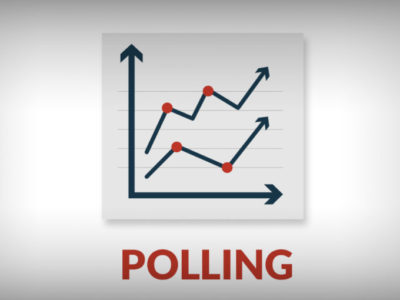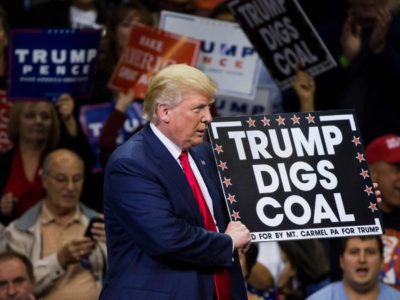Boosting Electric Vehicle Charging Infrastructure To Meet Demand
Free luncheon and report release event at UCLA Law on Thursday, June 29th, with keynote by Energy Commissioner Janea Scott
Few clean technologies are as central for meeting climate change goals as electric vehicles. Yet in places like California, which leads the U.S. with approximately 300,000 EVs on the road, the needed charging infrastructure is lagging. Analysts estimate that the state will need as many as 220,000 publicly accessible EV charging ports by 2020 to meet demand, well beyond the roughly 12,000 available in the state today. How will California meet this challenge? Join the...
CONTINUE READINGThe Dangerous Politics of Nostalgia
It's a good idea to look in the direction you're traveling, not backwards to your past.
In an airport, I recently saw a sign above the moving walkway advising us to face in the direction we were traveling. That's sound advice for life in general and policy making in particular. It's a recipe for failure to try to restore the past rather than looking toward the future. Unfortunately, rather than embracing the future, the Trump Administration has its eyes firmly locked on an imagined 1950s golden age. Trump notoriously favors the old energy secto...
CONTINUE READINGCalifornia Members of Congress Seek to Eviscerate State Water & Environmental Laws
H.R. 23 Would Preempt California State Water Law & Supersede Federal, State Environmental Statutes
Quite understandably, the attention of the media, environmental organizations and the general public has been focused on the myriad misadventures of the Trump Administration, now rumbling and stumbling through its fifth month. And, as recounted on Legal Planet since mid-January, those contretemps include a great deal of environmental mischief emanating from the Executive Branch. But it would be a mistake to focus just on (anti-) environmental policies being generat...
CONTINUE READINGVox Populi and the Environment
Is Trump's attack on environmental law riding a groundswell of public opinion? Apparently not.
Trump is pushing hard to rollback Obama's climate change regulations, expand the use of fossil fuels, and discourage renewables. Where does the public stand on all this? The answer is that the public is mostly on the other side, but more needs to be done to heighten public awareness. A recent survey conducted jointly by Politico and Harvard had some intriguing findings. Sixty percent of Americans favored staying in the Paris Agreement after it was explained them. ...
CONTINUE READINGTrump’s Radical Anti-Environmentalism
Trump's target isn't just Obama. His rejection of environmental protection goes much deeper.
We often hear about the Trump Administrations’s plans to “roll back Obama’s regulations.” But the Administration's goals go much deeper. Hyperbole is always a risk when discussing opposing policy views, but to call this Administration a profound threat to environmental regulation is only to echo their own words. When he announced the executive order directing EPA to reconsider the Clean Power Plan, Trump proclaimed that his quarrel was not just with a few ac...
CONTINUE READINGWhy Trump’s Faux Withdrawal and Reality TV Announcement May Backfire
Opponents are Galvanized
President Donald Trump’s announcement that he will withdraw the U.S. from the Paris Agreement may have dramatic consequences for his administration – but not in the way he might imagine. His announcement is toothless. The U.S can’t withdraw from the Paris Agreement until the next Presidential election (assuming he makes it to the end). Yet his faux withdrawal has generated widespread international contempt, and may generate far more domestic political oppositio...
CONTINUE READINGPlanning for Utility-Scale Solar PV in the San Joaquin Valley
Free evening panel discussion in downtown San Francisco on Tuesday June 6th, 5:30 - 7pm
California aims to generate 50 percent of its electricity from renewable sources by 2030, and a new bill now in the legislature seeks to get to 100% renewables by 2045. A significant amount of this energy will come from solar photovoltaic (PV) installations, with much of the deployment likely to occur in California's San Joaquin Valley. But these facilities often engender controversy related to the loss of agricultural and biologically sensitive lands, among other con...
CONTINUE READINGIn Defense of Nicaragua
In the flurry of news articles, editorials, and think pieces on the U.S. withdrawal from the Paris Climate Accord, one fact has been cited widely as evidence that this is a bad move: the only other countries not part of the Accord are Syria and Nicaragua. The insinuation, of course, is that both of these countries are not of the civilized, progressive, strong nature with which we would like the U.S. to be associated when it comes to environmental protection (or any i...
CONTINUE READINGA Bitter Pill
Will Trump's Actions Unravel the Paris Agreement? It's complicated.
It's official: President Trump has decided to pull the U.S. out of the Paris agreement. So far as I c an, there's little support for his decision from anyone who is not beholden to the coal industry. Sadly, this decision is only one way in which this President has dashed the hopes of the world. This is a bitter pill to swallow. What will the effects be? We need to begin by being clear about the withdrawal process. Article 28 of the Paris Agreement provides: At...
CONTINUE READINGAll You Need to Know About the Paris Agreement
Five posts About the Paris Agreement in One Place
Today we will finally know whether Donald Trump will make good on his campaign promise to withdraw from the Paris Agreement. As background, here are five posts I've written since the agreement was adopted in December of 2015. First, Thoughts on the Accomplishments of the Paris COP , which explains why Paris is such a big deal and why solving the climate change problem is so tough. Second, If Trump Guts Key Programs, Does Staying in Paris Even Matter?, which out...
CONTINUE READING












